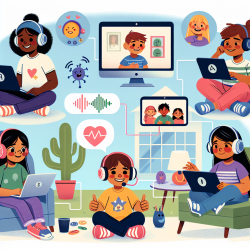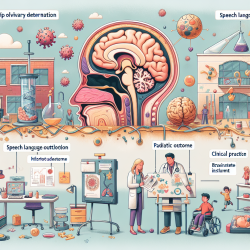The COVID-19 pandemic necessitated rapid adaptations in therapeutic services, especially for children with moderate-to-severe mental health disorders. A recent study titled "Adapting an emotional regulation and social communication skills group programme to teletherapy, in response to the COVID-19 pandemic" provides valuable insights into how these adaptations can be effectively implemented. This blog aims to help practitioners improve their teletherapy skills by highlighting key findings and encouraging further research.
Key Findings from the Research
The study focused on the Secret Agent Society (SAS) programme, an evidence-based curriculum designed to improve emotional regulation and social communication skills in children aged 8-12. Traditionally delivered face-to-face, the programme was adapted for online delivery due to the pandemic. Here are some of the critical adaptations and findings:
- Individualized Sessions: The programme shifted from group sessions to individualized, online therapeutic triads involving the child, their parent, and a clinician.
- Parental Involvement: Parents played a crucial role in the teletherapy sessions, acting as co-therapists and supporting their children in real-time.
- Technology Adaptations: A practice call was made to each parent to check technology and ensure a stable internet connection, which is crucial for the success of teletherapy.
- Session Structure: Sessions were shortened to 45 minutes to maintain the child's concentration and motivation levels, with visual schedules and token systems to keep them engaged.
Practical Tips for Practitioners
Based on the study's findings, here are some practical tips for practitioners looking to improve their teletherapy services:
- Engage Parents: Involve parents as active participants in the sessions. Their involvement can significantly enhance the effectiveness of the therapy.
- Prepare in Advance: Conduct a practice call to check technology and address any potential issues before the first session.
- Use Visual Aids: Utilize visual schedules and token systems to keep children engaged and motivated throughout the session.
- Adapt Session Length: Shorten sessions to 45 minutes to maintain the child's focus and effectiveness of the therapy.
Encouraging Further Research
While the study provides valuable insights, it also highlights the need for further research to confirm the efficacy of teletherapy for children attending CAMHS. Future studies should focus on:
- Comparing face-to-face and teletherapy outcomes.
- Exploring long-term effects of teletherapy on emotional regulation and social communication skills.
- Investigating the role of technology in enhancing or hindering therapy outcomes.
In conclusion, adapting face-to-face emotional regulation and social communication programmes to teletherapy can be achieved with careful planning and parental involvement. The insights from this study can serve as a foundation for further research and improvement in teletherapy services.
To read the original research paper, please follow this link: Adapting an emotional regulation and social communication skills group programme to teletherapy, in response to the COVID-19 pandemic.










